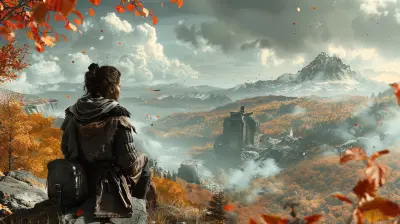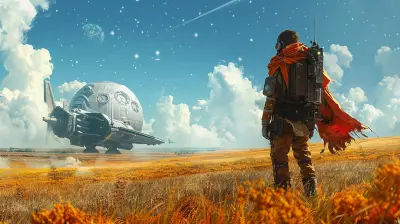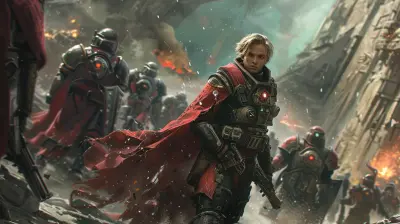How Online Communities Shape Free-to-Play Games
30 June 2025
Ever picked up a free-to-play (F2P) game because someone on Reddit swore it was the next big thing? Or joined a Discord server just to find people to team up with in your favorite mobile battle royale? Well, you're not alone. Free-to-play games might be free at their core, but it’s the players—the communities—that give them life, purpose, and in many cases, longevity.
In this article, we'll dive deep into how online communities shape free-to-play games. From game design to monetization, balance tweaks to content updates, and everything in between, you'll see just how powerful player voices can be. Ready? Let’s get into it!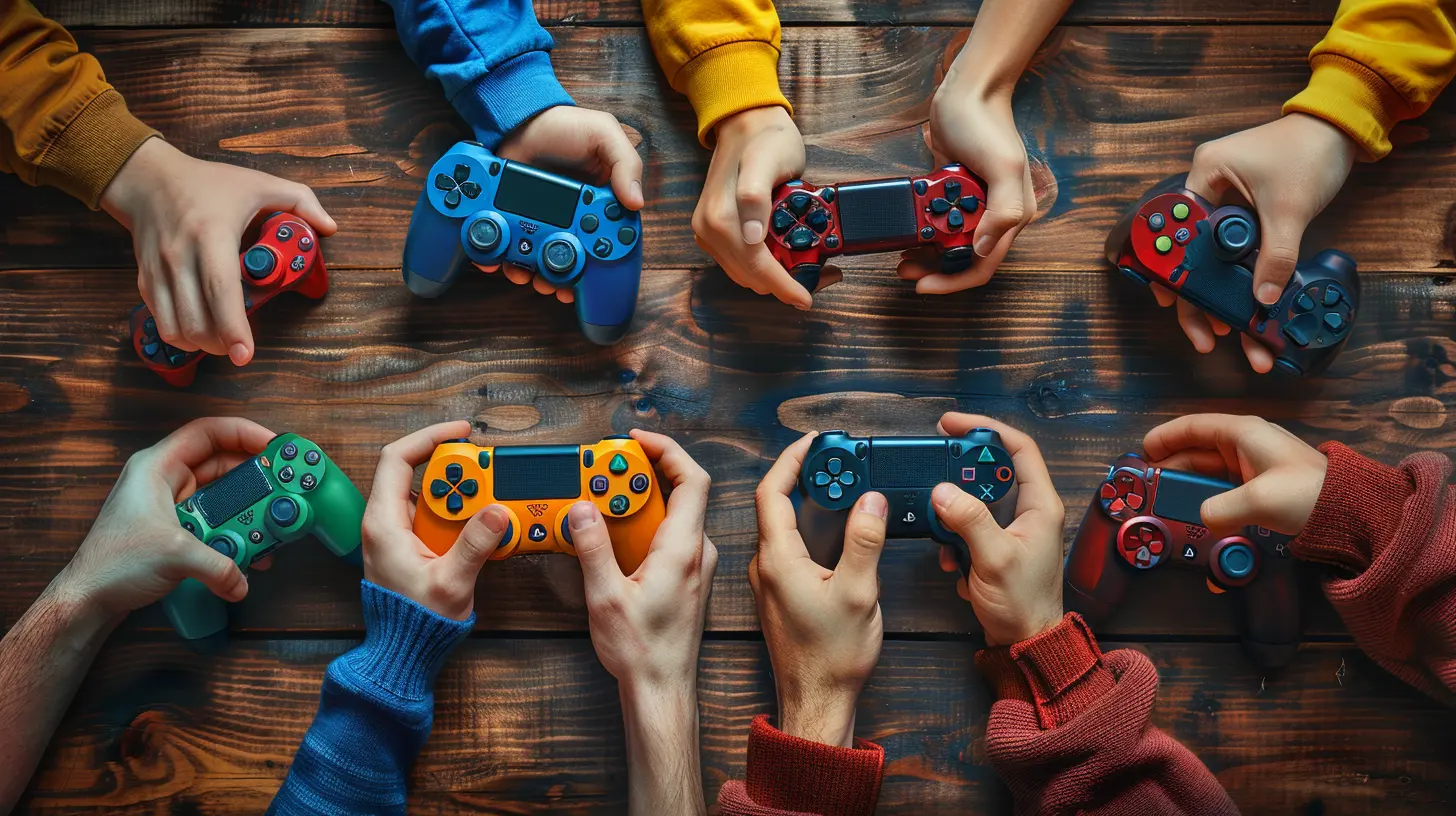
The Heartbeat of Free-to-Play Games: The Community
Let’s be real—free-to-play games live and die by their communities. The developers might build the playground, but it’s the players that decide what games thrive and what gets tossed into the forgotten folders of Steam, the App Store, or Google Play.Why Communities Matter More in F2P Games
Unlike premium games where the devs already have your money once you buy the title, F2P games make money after you start playing. This flips the dynamic completely. In F2P, keeping players around is the main goal, and who do players stick around for?Other players!
Whether it’s the competition, the camaraderie, the memes, or the guild drama, community becomes the reason people keep logging in. Just think of games like Fortnite, Genshin Impact, Warframe, or League of Legends—their communities help keep them in the spotlight year after year.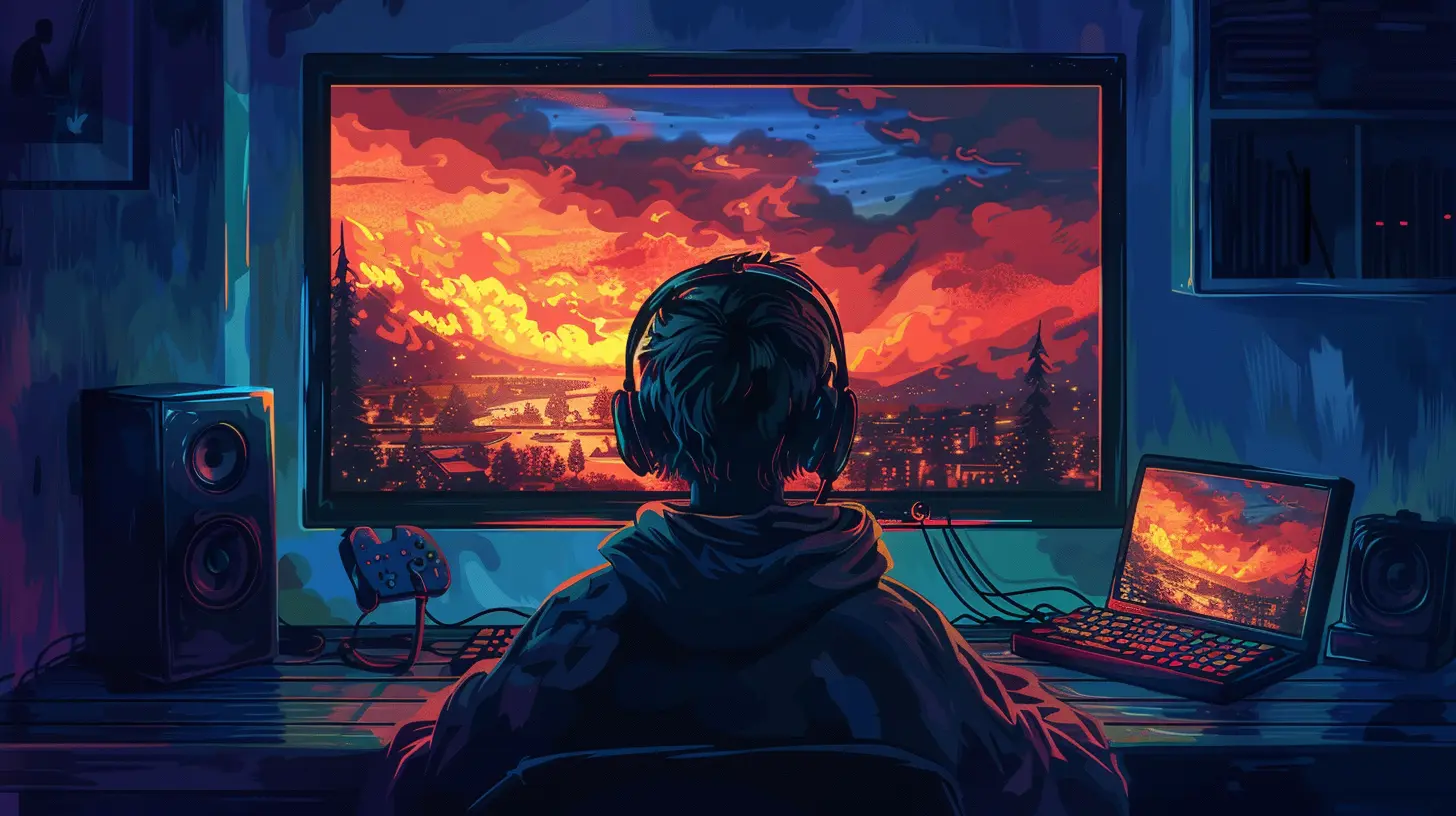
The Power of Feedback: Players as Co-Developers
You’ve probably noticed how quickly F2P games adjust things. One week a weapon is OP, the next it’s nerfed into oblivion. That’s often a direct response to community feedback.Real-Time Balance Tuning
Most successful F2P games have community managers, Discord mods, subreddit lurkers—you name it—constantly collecting feedback. They know that if a community feels ignored, retention drops, and so does revenue. So what happens? Developers listen. Sometimes obsessively.Take Apex Legends as an example. A single overpowered character or weapon leads to floods of feedback. And what do the devs do? Patch it ASAP. That’s community power in action.
Design by Committee… With Caution
Sometimes devs even involve the community in design decisions. While this sounds utopian, it’s a double-edged sword. Cater too much to hardcore fans, and casuals feel left out. Ignore players altogether, and you risk a mass exodus.The sweet spot? Listening, adapting, and always keeping communication open.
Mods, Fan Art, and Memes – The Culture Drivers
Don’t underestimate the power of memes. Honestly, some games have survived because of meme culture.User-Generated Content Fuels Engagement
Online communities don’t just play games—they remix them. Fan art, cosplay, lore theories, gameplay clips, guides, and fan-made events all create a rich ecosystem around a game.This content, spread across TikTok, Twitter (X?), YouTube, and Reddit, does more than entertain. It markets the game for free. That’s like having thousands of unpaid marketers out there hyping up your game, day in and day out.
Mods and Customization
Now, some F2P games allow mods—especially on PC. Think of games like Warframe or Path of Exile where the community creates detailed build guides, map overlays, and more. These aren’t just conveniences; they’re community creations that make the game better for everyone.
Social Features Can Make or Break It
Let’s face it—you’re far more likely to stick with a game if your friends are playing, right?Clans, Guilds, and Squads
Most F2P games include some kind of group feature—guilds, alliances, or even casual friend lists. These features are more than just bonuses; they’re retention machines. A player who joins a guild is way more likely to stay than a lone wolf.And when you’re in a squad, suddenly you’re not just logging in for dailies—you’re doing it so your guild doesn’t lose in that weekly war!
In-Game Chat and Voice
Toxicity aside (we’ll get to that), voice chat and text chat keep players engaged. Whether it’s calling out enemy positions in real time or making jokes while fishing in a mobile MMORPG, communication builds bonds.Those bonds? They're what transform a game from “just another app” into a daily ritual.
The Dark Side of Community Influence
Hey, not everything is sunshine and rainbows. Communities can also bring challenges that devs have to navigate very carefully.Toxicity and Harassment
With large communities come trolls, toxicity, and the occasional full-blown scandal. When left unchecked, these behaviors drive away new players and damage reputations faster than a bad patch note.That’s why moderation tools, report systems, and clear community guidelines are essential—especially for F2P games trying to appeal to large, diverse audiences.
Whales and FOMO Pressure
In many F2P games, a small percentage of players (often called “whales”) spend tons of money. When communities start pressuring others to "pay to keep up," it can create a toxic environment. The “free” part of “free-to-play” starts to feel like a joke.Good devs work hard to balance monetization so that everyone can have fun—whether they’re spending money or not.
Crowd-Sourced Marketing: Word of Mouth on Steroids
Let’s talk hype. Ever heard about a game just because EVERYONE on your feed was talking about it? That’s online community power in full swing.Viral Moments and Social Media
Sometimes it’s a trending tweet. Other times it’s a Twitch streamer popping off in a live match. Whatever it is, communities love to hype what they love. And when that happens, developers don’t need million-dollar ad campaigns. They just need to ride the wave.Case study? Among Us. That game sat in obscurity for two years until a few streamers picked it up. Communities did the rest. Boom—overnight sensation.
Influencers and Content Creators
Let’s not forget the role of YouTubers, TikTokers, and Twitch streamers. They’re like megaphones for community sentiment. If they’re hyped, the community is hyped. If they’re bored… well, it shows.Developers now court these creators—offering early access, exclusive skins, or partnership deals. Smart move, honestly.
Evolving with the Community: The Long Game
Communities aren’t static. What people liked six months ago might be outdated now. The best F2P games evolve with their communities.Seasonal Content and Live Ops
Games like Fortnite and Call of Duty Mobile thrive on seasonal updates. These events not only offer fresh content but also tie into community trends. A holiday event, a collab with a hot new anime, or a surprise twist in the story? All shaped by what the community loves at the time.Listening & Transparency Builds Trust
Some devs even release development roadmaps or host Reddit AMAs to stay transparent. This kind of direct communication makes players feel heard. It builds trust. And guess what? Loyal players spend more and stick around longer.What the Future Looks Like
If one thing’s clear, it’s that online communities will continue to play a massive role in shaping F2P games.With tools like AI-driven moderation, player-driven content creation platforms, and even blockchain-based economies (yes, we’re talking Web3 stuff), the line between developers and communities is blurring even more.
Who knows? One day, communities might directly vote on game features. Or maybe we’ll see AI-generated weapons based on forum feedback.
Crazy? Maybe. But that’s the world we’re headed toward.
Final Thoughts
At their core, free-to-play games are more than just products—they’re living, breathing ecosystems powered by people. People like you and me. Every post, every suggestion, every meme, every rage-quit thread—it all adds up to shape what these games become.So next time you hop on your favorite F2P game, remember: you’re not just a player. You’re part of something bigger. A creator. A shaper. A game-changer.
And that? That’s pretty damn awesome.
all images in this post were generated using AI tools
Category:
Free To Play GamesAuthor:

Lucy Ross
Discussion
rate this article
2 comments
Blade Bass
This article beautifully highlights the vital role online communities play in enhancing free-to-play games. It's inspiring to see how these connections foster creativity, support, and shared experiences, transforming gaming into a truly collaborative and enriching journey for all.
October 30, 2025 at 3:40 AM

Lucy Ross
Thank you for your thoughtful comment! I’m glad you found the article inspiring and recognize the important role online communities play in enriching the gaming experience.
Dusk Alexander
Online communities significantly influence the evolution of free-to-play games, driving player engagement, shaping game mechanics, and fostering a sense of belonging, ultimately enhancing player retention and monetization strategies.
July 5, 2025 at 3:35 AM

Lucy Ross
Thank you for your insightful comment! I completely agree—online communities play a crucial role in shaping the dynamics of free-to-play games, influencing everything from mechanics to player loyalty.
